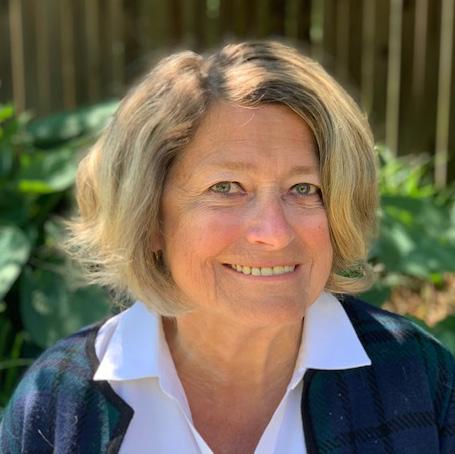
3 minute read
What Message Would Your Carrier Pigeon Send?
This year marks the 100th anniversary of women being granted the constitutional right to vote through the passage of the 19th Amendment. The journey to suffrage was a long-fought battle by hundreds, if not thousands, of strong-willed women. We know the stories of the prominent trailblazers of the Suffrage Movement like Elizabeth Cady Stanton and Lucretia Mott forming the Seneca Convention; Susan B. Anthony who traveled the country to deliver suffragist speeches; and Sojourner Truth, a former slave who became an advocate for the women’s rights movement. However, not as many know the story of Alice Stone Blackwell.
Alice Stone Blackwell was born in East Orange, New Jersey, as the only child of Henry Blackwell and Lucy Stone, a preeminent suffragist and abolitionist who formed the first national women’s rights convention. Blackwell came from a long line of remarkable women—besides her mother, two of her aunts were among the first female physicians in the US, and her other aunt was the very first ordained female minister. Immersed in the feminist movement from childhood, Blackwell graduated from Boston University with honors and thereafter joined the editorial staff of Woman’s Journal, an abolitionist periodical founded by her mother and the official magazine of the American Women Suffrage Association
(AWSA). Blackwell became the chief editor of Woman’s Journal after her mother’s passing in 1893 and retained the title until 1917.
A brilliant thinker and innovator, Blackwell was integral in reconciling the two competing organizations of the women’s suffrage movement—the AWSA and the National Woman Suffrage Association. By merging the two organizations, Blackwell formed the National American Woman Suffrage Association in 1890. She served as the organization’s recording secretary in 1909 and 1910. Blackwell was also the president of the New England and Massachusetts Woman Suffrage associations.
Among her achievements, Blackwell is lesser known for another ingenious endeavor—sending suffragist messages across the country by carrier pigeon. Seven years before the passage of the 19th Amendment on August 9, 1913, the San Francisco Chronicle published an article entitled “Homing Pigeons Carry Suffragette Messages.” The article reported:
The homing pigeons bearing suffragette messages for Miss Alice Stone Blackwell reached Boston from New York this morning. Birds were set free in City Hall Park, New York, yesterday (continued on page 14)
by four young women campaigners, who are traveling over the road from there, making suffragette speeches en route. The birds are named Henry Blackwell and Lucy Stone…
Upon the 100th anniversary of women gaining the right to vote, it is imperative to take the time to reflect on the great strides our predecessors have made in the journey to true equality. However, the best way we can honor our predecessors is to continue pursuing their enterprise. While we have certainly come a long way, we have yet to achieve true parity for women.
Women comprise a mere 5% of Fortune 500 CEOs. Furthermore, even though women make up half of the workforce in the US, women comprise only 27% of the top 10% of earners, and the inequities between women and men are even steeper for women of color. White women make 81.5 cents on the dollar compared to their male counterparts, yet black women and Hispanic women make 65.3 cents and 61.6 cents on the dollar, respectively. Perhaps even more difficult to reconcile
is the persistent bias women face in the workforce. A study released by the United Nations Development Program revealed that close to 90% of men and women hold some sort of bias against women. On the global scale, women in some countries are still not afforded the basic rights that our predecessors fought to achieve 100 years ago.
As Alice Stone Blackwell’s mother, Lucy Stone, said, “Now all we need is to continue to speak the truth fearlessly, and we shall add to our number those who will turn the scale to the side of equal and full justice in all things.” So, in the spirit of Alice Stone Blackwell, I ask you: What message would your carrier pigeon send? n

TABITHA ROBINSON is a staff attorney for Nashville Electric Service. She is cochair of the High School Intern Program for the NBA Diversity Committee and co-chair of the NBA Sister Cities Committee. She is also a board member for Lawyer’s Association for Women, Women’s Political Collaborative of TN, Sister Cities of Nashville, and on the advisory council for W.O. Smith Music School. Tabitha is a graduate of the University of Tennessee College of Law.








